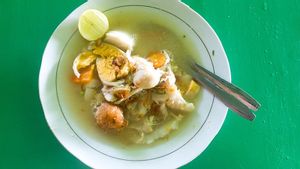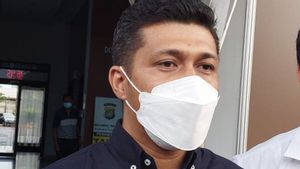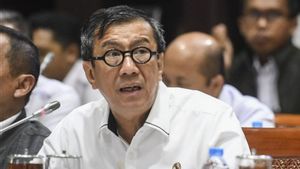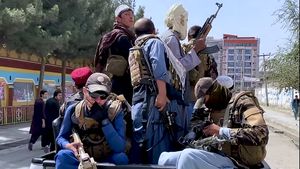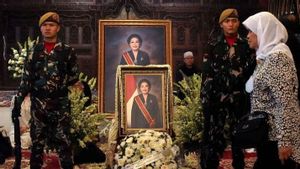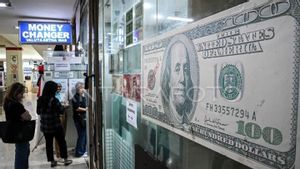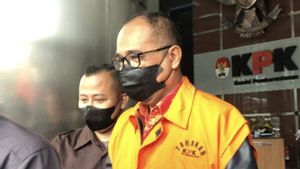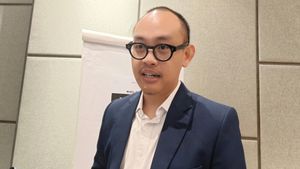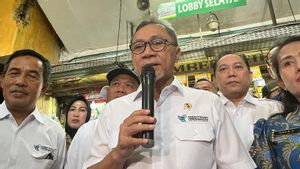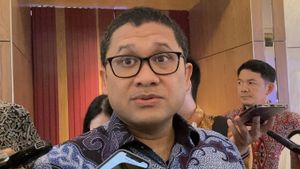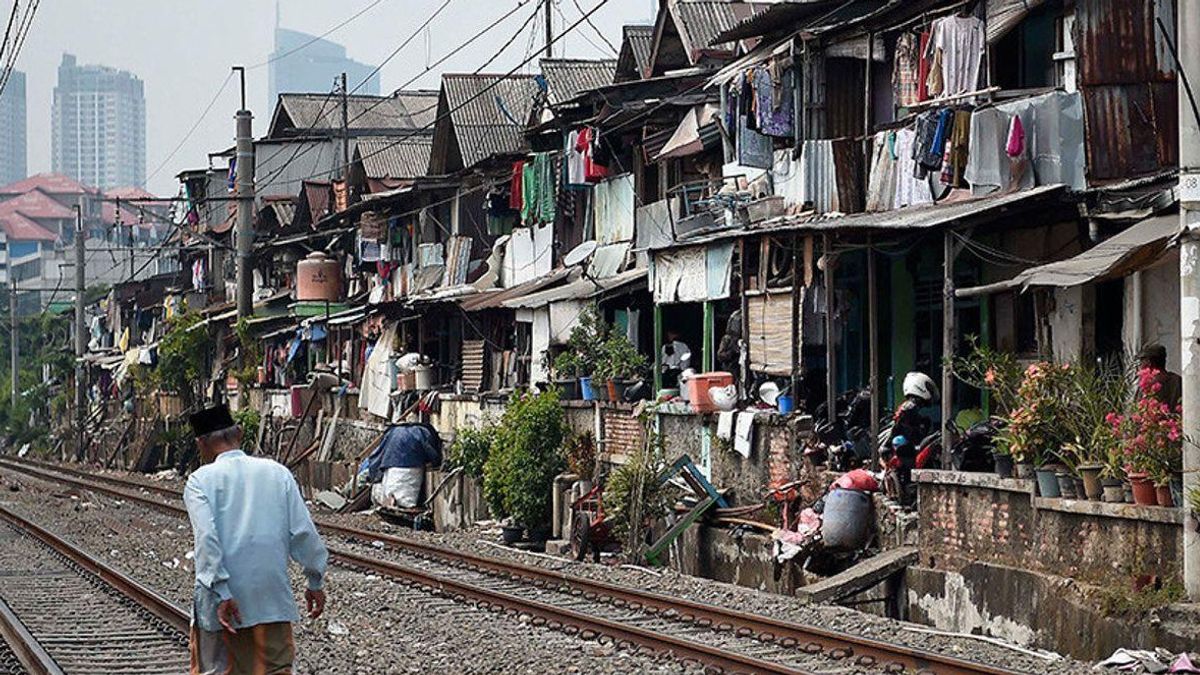
JAKARTA - The assets of state officials or administrators have increased during the COVID-19 pandemic. On the other hand, poverty is evenly distributed among the Indonesian population in general. It is even more ironic to see the arrest of a chicken farmer for spreading a message asking for Jokowi's help in the middle of the President's working visit in Blitar, East Java.
The wealth of state officials or administrators increased by 70.3 percent during the COVID-19 pandemic. This is revealed from the results of the analysis of the wealth report of state administrators (LHKPN). Deputy for Prevention and Monitoring of the Corruption Eradication Commission (KPK) Pahala Nainggolan explained that the analysis was carried out in the past one year.
"We have also observed that during the last year's pandemic, in general, for state administrators, 70 percent of their wealth has increased," said Pahala in a webinar entitled What's Difficult to Report LHKPN on Time and Accurately, Tuesday, September 7.
From that note, it is known that there is 58 percent of ministers whose wealth has increased by more than Rp1 billion. There is 26 percent of ministers whose wealth has also increased but below Rp1 billion. In addition, there is 3 percent of ministers who actually experience a decline in wealth. From the scope of the DPR, there is 45 percent whose wealth has increased by more than Rp1 billion.
Their number is also dominant compared to DPR members whose wealth has increased by less than Rp1 billion (38%) or who reported their wealth has decreased (11%). At the local government level, whether district/city or provincial, the KPK recorded the same trend. Thirty percent of governors and deputy governors reported that their wealth had increased by more than Rp1 billion.
Meanwhile, those whose wealth increased by less than Rp1 billion were recorded at 40 percent. At the regent/deputy regent level, the KPK noted that there was 18 percent of those whose wealth increased by more than Rp1 billion. Even so, Pahala views that the increase in the amount of wealth of these officials is still at a reasonable level. "We think the increase is still reasonable," Pahala.
List of officials with increased wealth

Starting from Jokowi. The President recorded a total asset value of Rp63,616,935,818. This number includes the increase in Jokowi's wealth which reached Rp8,898,734,925 in the past year. In the last wealth report recorded by the KPK on February 29, 2020, Jokowi recorded a wealth of Rp54,718,000,718.
Coordinating Minister for Maritime Affairs and Investment Luhut Binsar Pandjaitan noted an extraordinary increase in wealth: Rp67,747,603,287 during the COVID-19 pandemic. With this addition, Luhut's total wealth reaches Rp745,188,108,997. In the previous report, May 1, 2020, Luhut's wealth was recorded at Rp677,440,505,710.
Prabowo Subianto recorded an increase in wealth of Rp23,382,958,500 over the past year. The addition contributed to Prabwo's total wealth which reached Rp2,029,339,519,335. In last year's report, January 23, 2020, the Minister of Defense recorded a wealth of Rp2,005,956,560,835.
One of the most highlighted on the list is Minister of Religion Yaqut Cholil Qoumas. His wealth jumped sharply to a thousand percent or ten times since becoming the minister of religion. It was recorded that Yaqut's wealth increased by Rp10,221,697,639, which contributed to his total wealth which was recorded at Rp11,158,093,639.
In a previous report, June 19, 2020, when Yaqut was a member of the Indonesian House of Representatives for the 2014-2019 period, Yaqut recorded a wealth of Rp936,396,000. "We just want to see if there is anything strange from this pandemic period. It turns out that we see an increase occur. But a decrease also occurs with statistics like this," said Pahala in the webinar.
Indonesian population poverty rate

The record of the wealth of officials is inversely proportional to the economic condition of the Indonesian population in general. The Central Statistics Agency (BPS) recorded that there were 27.54 million poor people in March 2021. This number actually decreased from the September 2020 record.
But not significant, only 0.01 million people. In fact, if it is pulled to March 2020, the poor population will increase by 1.12 million. In detail, the increase in the urban poor rose 0.01 percentage point. Poverty among villagers fell 0.1 percentage point.
According to the BPS categorization, the poor are those whose per capita expenditure is below the poverty line (GK) or less than Rp472,525 per capita per month. In March 2021, GK was recorded to have increased from Rp458,947 in September 2020.
Food was the GK category that contributed the most, with a share of 73.96 percent. Until March 2021, the commodity that has a major impact on food GK is rice.
The contribution of rice was recorded at 24.06 percent in rural areas and 20.03 percent in urban areas. In conclusion, BPS notes that prices should be controlled for rice, the commodity which is in fact the most consumed by the public.
The irony of the gap between the people and officials
Not just from the numbers. We can see the irony of the gap between the people and state officials from the police action in arresting a farmer with the initials S in Blitar, East Java. S was arrested for unfurling a poster containing a message asking Jokowi for help in the middle of the President's visit. Although S was immediately released again by the police, the arrest illustrates many things.
Amnesty International Indonesia Executive Director Usman Hamid said the arrest of S widened the gap between the government and the people. The affirmation of a government that is indeed anti-people. Usman called the incident an affirmation because basically there are many government policies that are not oriented to the interests of the people.
"Indeed, many of the policies of the Jokowi administration are anti-people and contrary to their own promises ... the incident shows the actions of some government officials who are anti-people," Usman told VOI.
Uchok Sky Gaddafi, Executive Director of the Center for Budget Analysis, emphasized the Jokowi administration's anti-people policies. And the fact of increasing the wealth of officials in the midst of the economic downturn of the population is proof. "The wealth of the officials is indeed strange. It should be the people who are getting richer, not the officials."
*Read other information about NATIONAL NEWS or read other interesting articles from Yudhistira Mahabharata.
Other NEWS
SEE ALSO:
The English, Chinese, Japanese, Arabic, and French versions are automatically generated by the AI. So there may still be inaccuracies in translating, please always see Indonesian as our main language. (system supported by DigitalSiber.id)


